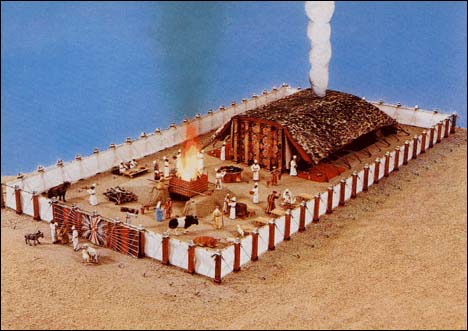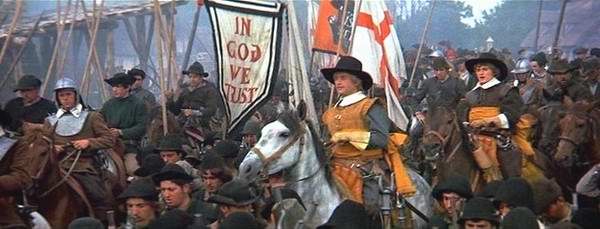Should Christians Celebrate Christmas?
For many people Christmas is the most important social event of the year. They spend lots of time, energy and money on their preparations for the festive season. At no other time of the year are there so many parties, dinners and social events. Family visits are arranged and the children look forward to it with great anticipation. Christmas images abound: snowy, Victorian scenes, camels crossing deserts and the inevitable Father Christmas. With its colour, warmth and cheer Christmas is, for many, the high point of the festive calendar.
Christmas, of course, has a religious dimension. Amidst all the tinsel, shopping trips and coloured lights, is the idea that the birth of Jesus is being celebrated. Christmas carols sound out on street corners and in department stores. Images of mother and child, angels, shepherds and stable scenes add to the displays in shops and churches. Many go to church or sing carols. All this contributes to the unmistakable and unique atmosphere at Christmas time. Because of its cultural importance and the assumption that our country is largely a Christian country, the thought of a Christian not celebrating Christmas may seem strange. But there are firm reasons why Christians who take a serious interest in the Bible withdraw from the festive season entirely. The risk of being thought of as unsociable or overly strict is outweighed in their consciences by a number of facts about Christmas and their understanding of the teaching of the Bible.
The Origins of Christmas
Many people are aware that the origins of Christmas lie in the pre-Christian pagan observance of the winter solstice. Neither: Christ, nor the apostles, nor any of the early Christians celebrated anything that could be described as Christmas. It was: only in the 4th century AD that the Church of Rome introduced the idea of a mid-winter ceremony, the Christ-Mass, as a way of making Christianity more attractive, to pagans. The retention of Christmas in the Protestant Church depended upon the extent to which the principles and practises of Rome were deemed acceptable. Where, these were repudiated as unbiblical, Christmas was also repudiated. So that until recently, the recognition of Christmas was unheard of in many churches
The Lies of Christmas
The actual date of Christ's birth is disputed. It is wrong, therefore, to invent a date. Christ never intended the wondrous event of his birth to be associated with pagan rituals or transformed into an annual festivity. As with the date of the Saviour's birth, much of what people associate with Christmas is simply untrue. Christianity, however, is concerned with the truth above everything else. The Bible is the true Word of God. Jesus said: "I am the way, the truth and the life." (1) There is simply no place in the faith and life of a Christian for deliberate falsehood. He is forbidden by the Ten Commandments from lying (2) and therefore cannot go along with lies in an shape or form. He must not pretend that 25th December is Jesus' birthday. He may not sing the carol which says that Christ was born on Christmas Day. He does not accept the myth of Santa Claus. The Bible identifies the devil as a liar (3) and therefore the Christian can have nothing to do with whatever he knows to be a lie, however "harmless" others might consider it to be.
True Christian Worship
The Christian is concerned with how he worships God. His guide in this matter is the Bible. The Scriptures state that God is to be worshipped in spirit and in truth. (4) No place is to be given to images or idols or anything that could be mistaken for them (pictures of Mary, Jesus, angels, etc.). The second commandment begins: "Thou shalt not make unto thee any graven image, or any likeness of any thing that is in heaven above" (5) . The nativity scenes that abound in homes, schools and even churches, are a flagrant breach of this commandment. The all too common depiction of the Son of God in the form of a plastic doll is therefore nothing short of blasphemous.
God's Holy Day
While many see Christmas as a holy day it is not seen as such by God. The day appointed by God to be kept holy is the first day of the week, the Christian Sabbath. This is the day He has commanded all people to keep holy and to rest from worldly work and recreations. (6) The Lord Jesus Christ said that the Sabbath was made for man,(7) which means that in appointing one day in seven to be a day of rest and worship, God had the well-being of people at heart. The Christian Sabbath or Lord's Day is also given to us to focus on the great theme of redemption, central to which is Christ's resurrection on the first day of the week. (8)
The True Christ
Jesus Christ is described in the Scriptures as "a man of sorrows, and acquainted with grief". (9) He was the Son of Man who had nowhere to lay his head. (10) He was nailed to a cross to die for the sins and iniquities of others. The quasi-religious aspects of Christmas are things which only take people further away from the truth of the gospel which Jesus came to declare. Christ Jesus came into the world to save sinners.(11) Rather than join with the world in Christmas pleasures, true followers of Christ should listen to His voice, as found in the Bible, and seek to serve Him in the Ways that He prescribes there.
Bible References:
1. John 14:6
2. Exodus 20:16
3. John 8:44
4. John 4:24
5. Exodus 20:4
6. Exodus 20:8
7. Mark 2:27
8. Luke 24:1/Acts 20:7
9. Isaiah 53:3
10. Luke 9:58
11. 1 Timothy 1:15

















